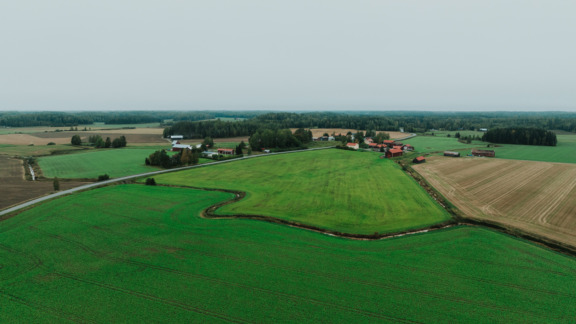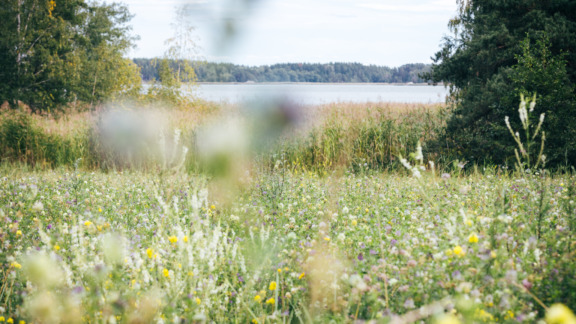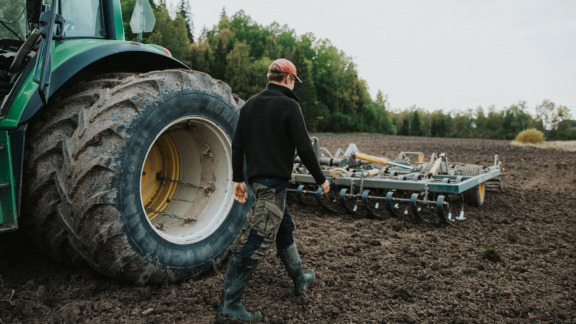Collaboration was the key in the Baltic Sea themed discussion forum organized by Helsinki and St. Petersburg
The city of Helsinki, the city of St. Petersburg, Baltic Sea Action Group, RMEY ry, East Office and The Baltic Sea Challenge organized a joint discussion forum on the 1st of November in Helsinki’s Old Town Hall. The forum brought together Finnish and Russian high-level decision makers to discuss the state of the Baltic Sea.
The moderator, member of parliament Harry Harkimo reminded the listeners that it often takes a while for environmental degradation to become obvious. The Baltic Sea’s catchment area consists of 14 countries, and the sea has received massive amounts of human-induced loading for a long time. This is also why saving the sea requires contribution from everyone.
The Mayor of Helsinki, Jan Vapaavuori, mentioned BSAG and other third sector organizations’ role as the defenders of the Baltic Sea. Vapaavuori called for concrete action, collaboration between different sectors, and far reaching, future-oriented decision making to save the sea.
”Helsinki overlooks one of the most polluted seas in the world – saying this saddens me every time. An ailing sea cannot be the source of well-being. Saving the sea requires developments that surpass our lifetime”, Vapaavuori stated.
Official greetings were delivered by the Chair of Committee of External Relations of the Government of St. Petersburg Evgeny Grigoryev, State secretary Kimmo Tiilikainen, Member of Parliament Jukka Kopra, Vice-chair of the Committee of Regional Policy of North of the State Duma of the Russian Federation Valentina Pivnenko, and Member of the State Duma Vitaly Milonov. All highlighted the importance of collaboration in saving the sea. A lot has already been accomplished for the Baltic Sea but a lot also remains to be done.
Permanent Secretary of the Ministry of Environment Hannele Pokka addressed the decades-long Finnish-Russian collaboration in her speech. She also pointed out the successes in the work done for the Baltic Sea: ”The Baltic Sea may invoke negative impressions in many of us. However, we should also keep in mind the numerous accomplishments.”
The forum consisted of presentations on three main themes, as well as a panel discussion. Esteemed experts gave presentations on soil carbon sequestration, protection of underwater marine biodiversity, and collaboration between cities. The presentations and the panel discussion were moderated by the Chair of the Board of East Office Ltd. Ilkka Salonen.

BSAG’s co-founder and Chair of the Board Saara Kankaanrinta gave a presentation on the importance of healthy soil, Carbon Action platform and the stn MULTA project. The Carbon Action platform, initiated by BSAG, fights climate change through sustainable agriculture, in collaboration with farmers, scientists and businesses. The change is needed, as our current food production system is built on an unsustainable foundation. The loss of fertile soil and nature’s biodiversity, erosion, as well as nutrients leaking from fields to waterways are just few of the problems caused by intensive agriculture and monocultures.
”Soil, climate change and the Baltic Sea are intertwined in a way that was not really addressed ten years ago, when BSAG was founded. Climate change affects the Baltic Sea in many ways, such as exacerbating the eutrophication problem. Work against climate change is also work for the Baltic Sea”, Kankaanrinta declared.
Professor Oleg Kharkhordin from the European University of St. Petersburg commented on Kankaanrinta’s presentation. He also acknowledged the role of deep-rooted plants, healthy soil microbiome and reduced tillage in enhancing soil carbon sequestration. As a social scientist Kharkhordin noted that sociological studies provide additional tools to encourage carbon farming. Multidisciplinarity should be encouraged e.g. through research funding.
Second theme in the forum was the protection of underwater marine biodiversity. Professor Markku Viitasalo from Finnish Environment Institute presented the methods and findings of the Finnish Inventory Programme for the Underwater Marine Environment VELMU. VELMU’s unique data enables the targeting of protective measures to cover the underwater areas that are most valuable for ensuring marine biodiversity. The work is helped forward in the Baltic Sea Action for Biodiversity project, initiated by BSAG. Similar inventory measures could be carried out outside Finnish marine areas as well.
”Eutrophication and habitat loss threaten underwater biodiversity. But the Baltic Sea is not dead yet, and there is a lot of life worth protecting under the surface”, Viitasalo reminded.
Vyacheslav Alekseyev from the Marine Mammals Research and Conservation Centre told about practical work to help the Baltic Sea’s seals. The centre has helped starved, injured, or lost sea mammals for 12 years. The animals are rehabilitated and returned back to nature. The centre also does scientific research, as well as raises awareness on seals’ lives. People’s willingness to protect nature increases as they become more informed.
The Baltic Sea’s biodiversity is also threatened by different hazardous substances. The sea is highly trafficked, and numerous wrecks have sunk to the bottom over time, possibly leaking substances such as oil into the sea. Kari Rinne from SET CleanTech Ltd. told the audience about these high-risk wrecks and the work done to empty them. Emptying the wrecks of oil is a big operation but luckily the technologies are evolving continuously.
All speakers in the forum mentioned the power of collaboration, and fittigly the third theme was collaboration between cities. Mari Joensuu from the city of Helsinki and Tove Holm from the city of Turku spoke about the cities’ collaboration for the Baltic Sea, which has gone on for 12 years. The Baltic Sea Challenge highlights action on the local level. Businesses, organizations, schools and cities are all welcome to join. The Baltic Sea Challenge also includes participants from outside Turku and Helsinki.
Ivan Serebritsky from St. Petersburg told the listeners about St. Petersburg’s collaboration with other cities. Cities play a major part in protecting the Baltic Sea, and it’s important to exchange experiences and opinions between cities. This is made possible by e.g. different conferences held in St. Petersburg. In addition, beach cleaning campaingns encourage citizens from around the Baltic Sea to gather trash and other debris from the beaches surrounding the sea.

The forum was completed with a panel discussion with Anders Blom from the University of Turku, Kai Myrberg from the Finnish Environment Institute, Ulla Tapaninen from the city of Helsinki, and Dmitry Troshenko from the city of St. Petersburg. The panelists’ statements brought up the importance of political decision-making, education, responsible business, and scientific research.
We share the sea, with its problems stemming from multiple sources and spanning across many decades. Constructive collaboration, as well as harnessing different sectors of society to work for the Baltic Sea are necessary to achieve good ecological balance of the sea.



